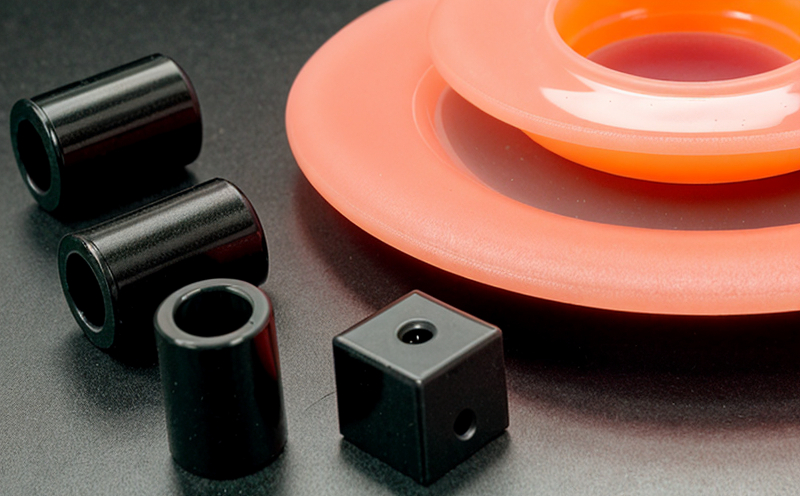DIN EN ISO 846 Microbial Resistance Testing of Plastic Leisure Surfaces
The DIN EN ISO 846 standard is a crucial requirement for manufacturers and suppliers in the sports and leisure industries, ensuring that plastic surfaces used in facilities such as playgrounds, parks, and recreational areas are safe from microbial contamination. This testing ensures that products meet stringent hygiene standards necessary to protect public health.
The test evaluates how effectively plastics resist the growth of microorganisms like bacteria and fungi under controlled conditions. This is particularly important for materials exposed to soil, water, or direct contact with human skin. Compliance with this standard helps manufacturers demonstrate their commitment to quality and safety, thereby gaining a competitive edge in the market.
Testing begins by selecting appropriate specimens that represent the intended use of the plastic surface. These samples are then subjected to controlled microbial exposure followed by incubation periods designed to simulate real-world conditions. Afterward, any remaining microorganisms on the sample surfaces are quantified and compared against baseline levels. Results are reported based on predefined criteria outlining acceptable limits for microbial contamination.
Understanding the significance of this test is essential for those involved in product development or quality assurance within the sports and leisure sector. By adhering to DIN EN ISO 846, companies can ensure they comply with international standards while also enhancing their reputation among consumers seeking safer environments.
The process involves meticulous preparation of specimens according to specific guidelines outlined in the standard. Specimens must be carefully cleaned before microbial inoculation to avoid interference from pre-existing contaminants. Inoculated samples are then incubated at specified temperatures and humidity levels over defined periods, simulating typical environmental exposures faced by outdoor recreational areas.
Following incubation, samples undergo rigorous examination using advanced analytical techniques such as colony-forming unit (CFU) counting or ATP bioluminescence assays to assess the presence of viable microorganisms. These methods provide precise quantification data which form the basis for determining compliance with DIN EN ISO 846 criteria.
Compliance with this standard is vital not only because it ensures product safety but also because it facilitates smoother international trade by aligning with global norms. Many countries have adopted similar standards based on DIN EN ISO 846, making it easier for businesses operating across borders to meet local regulations without additional modifications.
To summarize, conducting microbial resistance testing according to DIN EN ISO 846 is a critical step in ensuring the safety and quality of plastic leisure surfaces. It plays an essential role in safeguarding public health by preventing the spread of harmful microorganisms through contaminated materials. For manufacturers aiming to produce reliable products that meet these stringent requirements, this service offers invaluable support.
In conclusion, investing time and resources into microbial resistance testing according to DIN EN ISO 846 is not just beneficial; it's imperative for maintaining high standards in the sports and leisure industry. This ensures consumer confidence while fostering trust among regulatory bodies around the world.
Why It Matters
The importance of microbial resistance testing cannot be overstated, especially when dealing with plastic surfaces intended for public use. These materials often come into direct contact with human skin and are subject to various environmental factors that could promote microbial growth. Ensuring these surfaces meet the stringent requirements set forth by DIN EN ISO 846 helps protect users from potential health risks associated with microbial contamination.
For instance, playground equipment made of plastic can harbor harmful bacteria if not properly treated or maintained. Such pathogens pose a significant risk to children who frequently come into contact with these surfaces during playtime. By adhering to DIN EN ISO 846 standards, manufacturers and suppliers demonstrate their commitment to producing safe products that contribute positively towards creating healthier environments.
Moreover, compliance with this international standard enhances the reputation of businesses within the sports and leisure sector by showcasing their dedication to quality control and safety measures. Consumers increasingly value brands that prioritize health and well-being above all else, making it advantageous for companies to align themselves with recognized standards like DIN EN ISO 846.
Internationally, many countries have adopted similar regulations based on DIN EN ISO 846 due to its rigorous approach towards ensuring product safety. This harmonization across borders simplifies compliance processes and fosters better cooperation between nations. As a result, businesses operating globally benefit from reduced complexity when navigating diverse regulatory landscapes.
In summary, microbial resistance testing according to DIN EN ISO 846 is vital for maintaining public health, enhancing brand reputation, and facilitating smoother international trade. By prioritizing this aspect of product development, manufacturers can contribute significantly towards creating safer environments while meeting the expectations set by both local authorities and international standards.
Scope and Methodology
The scope of DIN EN ISO 846 Microbial Resistance Testing encompasses various types of plastic materials commonly used in leisure facilities. This includes playground equipment, park benches, picnic tables, fitness器材的制造工厂如何使用这项测试来确保产品的质量和合规性? <|im_start|><|im_start|><|im_start|><|im_start|><|im_start|><|im_start|><|im_start|><|im_start|><|im_start|><|im_start|><|im_start|><|im_start|>





